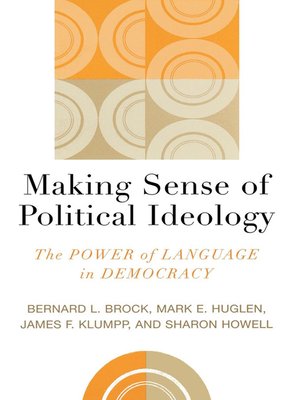
Sign up to save your library
With an OverDrive account, you can save your favorite libraries for at-a-glance information about availability. Find out more about OverDrive accounts.
Find this title in Libby, the library reading app by OverDrive.



Search for a digital library with this title
Title found at these libraries:
| Library Name | Distance |
|---|---|
| Loading... |
Political positions in the United States today are ideologically chaotic, and there are significant prices to pay for that chaos. The nation has not reached a crisis yet in her modern political gridlock, but predicting the time when the current generation will face the difficulties of earlier times of crisis such as the Civil War, the Great Depression, or World War II is a difficult task. When that time comes, leaders who can communicate effectively to foster understanding and political unity—and who can respond to a crisis with skilled direction—will be a vital concern.
Making Sense of Political Ideology explores the erosion of ties among ideology, language, and political action. Analyzing political language strategies, it shows how to dissect language so we can better understand a speaker's ideology. The authors define four political positions—radical, liberal, conservative, reactionary—and apply their techniques to contemporary issues such as the war on terrorism. They emphasize the dangers of staying trapped in political gridlock with no consensus for governmental direction and propose that the ability to identify and bridge positions can help political communicators toward constructing coalitions and building support for political action.
Making Sense of Political Ideology explores the erosion of ties among ideology, language, and political action. Analyzing political language strategies, it shows how to dissect language so we can better understand a speaker's ideology. The authors define four political positions—radical, liberal, conservative, reactionary—and apply their techniques to contemporary issues such as the war on terrorism. They emphasize the dangers of staying trapped in political gridlock with no consensus for governmental direction and propose that the ability to identify and bridge positions can help political communicators toward constructing coalitions and building support for political action.







